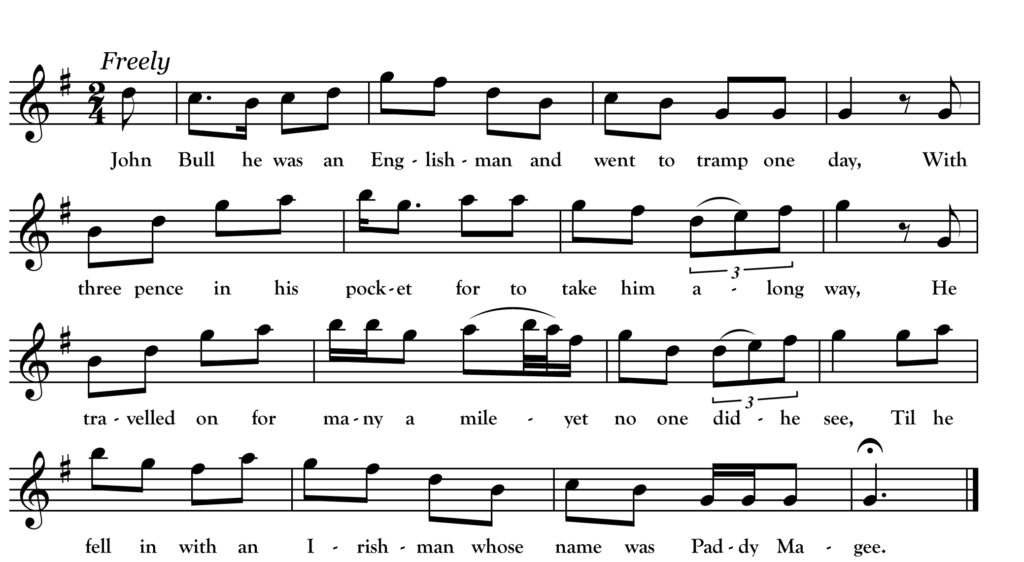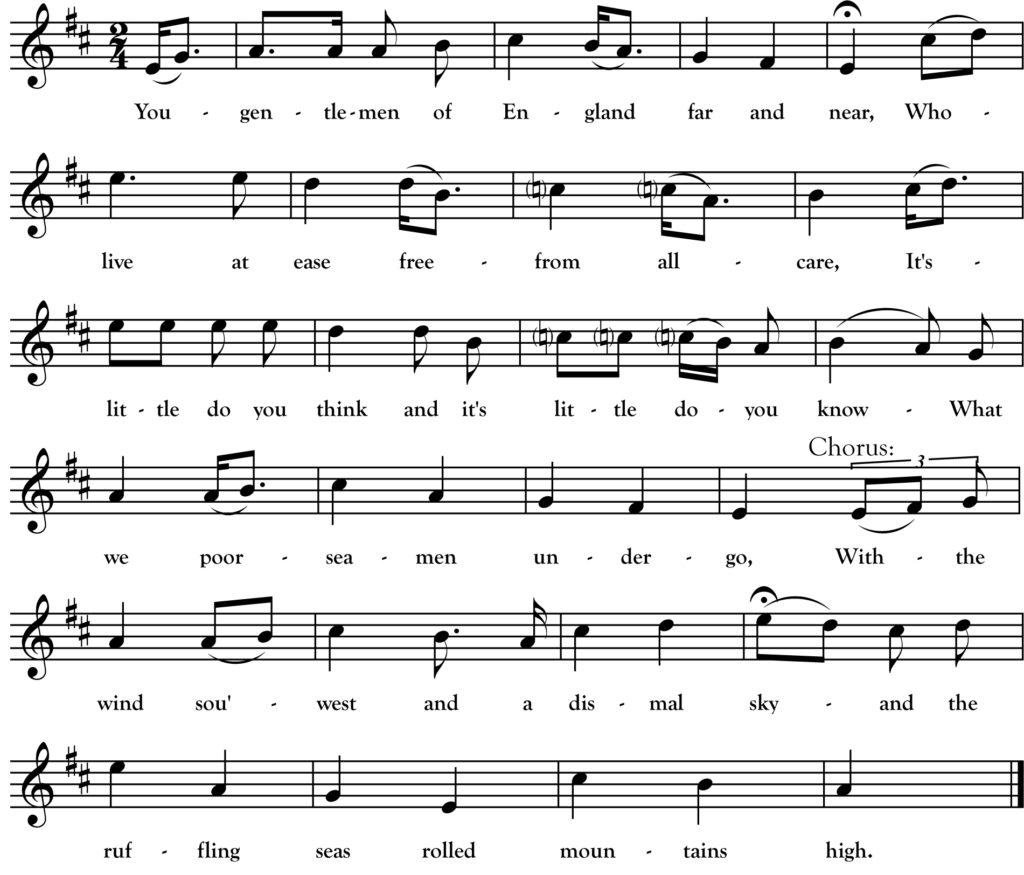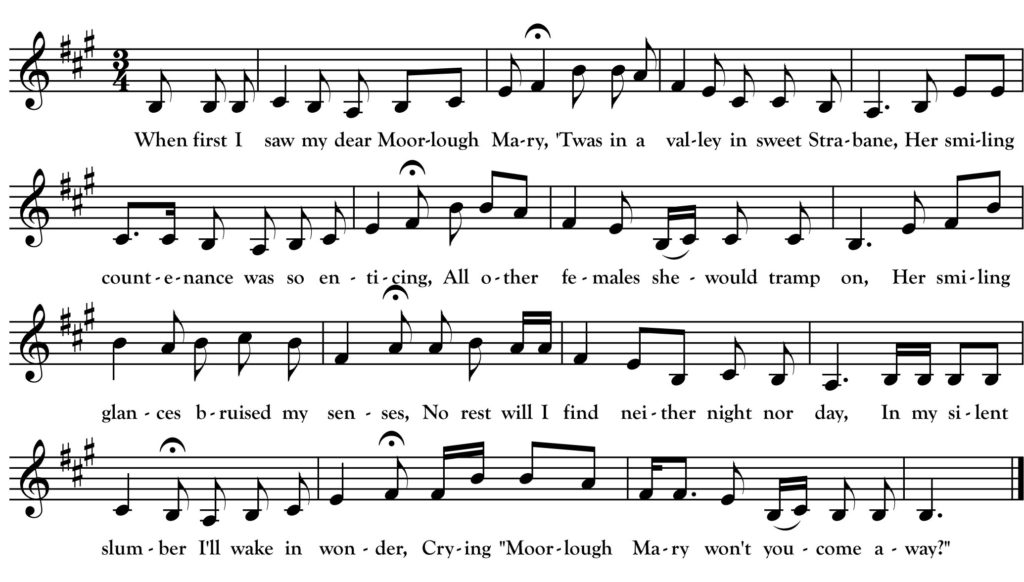The Three Dreams

John Bull he was an Englishman and went to tramp one day,
With three pence in his pocket for to take him a long way,
He travelled on for many a mile, yet no one did he see,
’Til he fell in with an Irishman, whose name was Paddy Magee.
“Good morning Pat,” said John to him, “where are you going to?”
Says Pat, “I hardly know myself, I want a job to do,”
“Have you got any money about you?” said John Bull unto Pat,
Says Pat, “It’s the only thing I’m lacking for I haven’t got a rap.”
Then they overtook a Scotchman who like them was out of work,
To judge by his looks he was hard up, and as hungry as a Turk,
“Can you lend me a shilling Scotty?” at last said Paddy Magee,
“I am sorry I canna,” said the Scotchman, “for I hae nae got ane bawbee.”
Said the Englishman, “I three pence have, what can we do with that?”
“Buy threepenny worth of whiskey! It will cheer us up,” says Pat,
“Nae dinna do that,” said the Scotchman, “I’ll tell you the best to do,
We’ll buy threepenny worth of oatmeal, and I’ll make some nice burgoo.”
“I think we had better buy a loaf,” the Englishman did say,
“And then in yonder haystack, our hunger sleep away,
We can get a drink of water from yonder purling stream,
And the loaf will be his in the morning who has had the biggest dream.”
The Englishman dreamt by the morning, a million men had been,
For ten years digging a turnip up, the biggest ever seen,
At last they got that turnip up, by working night and day,
Then it took five million horses, this turnip to cart away.
Said the Scotchman, “I’ve been dreaming fifty million men had been,
For fifty years making a boiler, the largest ever seen,”
“What was if for?” said the Englishman, “Was it mad of copper or tin?”
“It was made of copper,” said the Scotchman, “for to boil your turnip in.”
Said the Irishman, “I’ve been dreaming an awful great big dream,
I dreamt I was in a haystack, by the side of a purling stream,
I dreamt that you and Scottie were there, as true as I’m an oaf,
By the powers, I dreamt I was hungry so I got up and ate the loaf.”
This month we have a great “punchline” song from the repertoire of Angelo Dornan of New Brunswick. I transcribed the above from Helen Creghton’s 1956 recording of Dornan’s singing. Creighton’s collection titles the song “Johnny Bull.” Broadside versions, which date it to the latter half of the 19th century, usually use the title “Paddy Magee’s Dream” or “The Three Dreams.” A version from Donegal singer Jim Doherty titled “John Boiler” is available via the Inishowen Song Project collection on at itma.ie. I heard it sung at with great effect by Pennsylvania singer Steve Stanislaw at a session at a festival out east.
The caricature of the “Scotchman” in the song references his desire to make “burgoo.” According to Anthony Willich’s 1802 Domestic Encyclopaedia, burgoo was the name for the oatmeal porridge “eaten by mariners, and much used in Scotland.”


